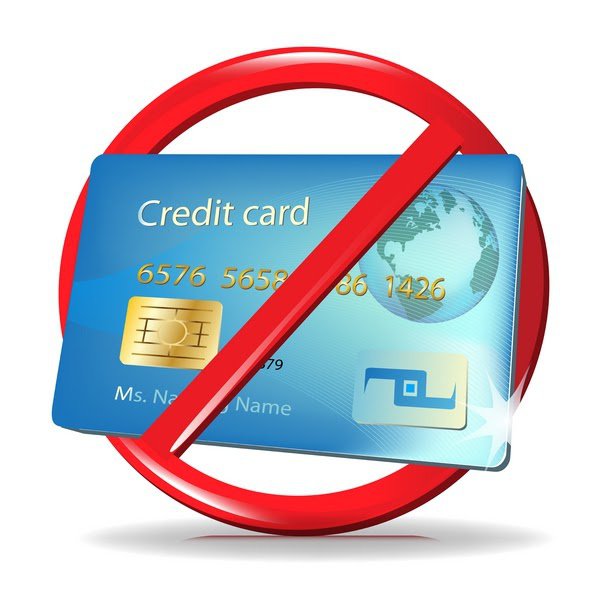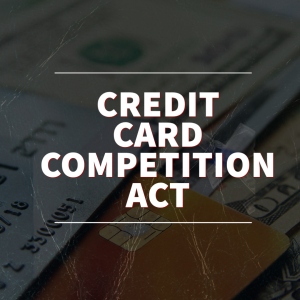Credit Card Cancellation
There is no hard and fast rule on how many credit cards you should have.
If you’re in possession of all the payments, as it appears you are, here’s what you should think about before canceling any of them.
According to Debra Ohstrom, a chartered financial analyst and financial educator, if you wanted to close one or two cards, you should assess the duration of your credit history, the payment history of the card, and the credit limit.
You don’t want to lose that steady payment and long credit history if it’s an old card that you used in the past but aren’t using anymore, she added.
As per her opinion, reliable payment history accounts for at least 30% of your credit score, so it’s critical. “Creditors prefer to see a consistent payment history, and the longer the better since it demonstrates your responsibility and stability.”
Another item to think about is your credit limit.
According to Ohstrom Even if you don’t use the card, having a large limit might help your credit score.
“Having a lot of credit available but not utilising it indicates you have low credit utilisation, which is a big element of your credit score,” she explained. “It’s excellent if you can maintain your credit use around 30%.”
If you cancel a lot of cards, you’ll lose your credit history and your available credit will decrease, lowering your credit score.
Having three cards is ideal, but having five isn’t a problem, especially if you don’t utilise them excessively.
As per Ohstrom’s opinion “It’s also a good idea to check your recent credit report to see if there are any remarks about your credit score,”
If there are any complaints on your credit report about significant amounts of revolving credit or your payment history, it can help you decide what is the best course of action for you.

If you have too many credit cards or have a credit card balance that is too high, you should think about closing one. While doing so may make your life easier, there are some complications to consider.
Credit Card Cancellation entails more than simply cutting the physical card in half and throwing it away. Furthermore, it may harm your credit score by affecting your credit history length and credit utilisation rate. We’ll show you how to cancel a credit card without ruining your credit and how to determine credit card cancellation is the best option in order to credit card cancellation.
Why canceling a credit card usually has a negative impact on your credit score
Closing credit card accounts usually hurts your credit in two ways: it shortens your credit history and lowers your credit utilisation rate, both of which are important factors in determining your credit score.
It distorts the duration of your credit history
Your credit history length accounts for 15% of your credit score and includes the age of your oldest card, your newest card, and the average age of all your cards. Your credit score may improve if you have a longer credit history in order to credit card cancellation.
The decision to close your oldest card may reduce your average and lower your score. However, the impact will not be felt right away. A closed credit card in great condition will typically remain on your credit file for ten years, so it may be some time before closing an older card account lowers your credit score.
It has the potential to increase your credit utilisation ratio
Simply split the balance on your cards by the total credit limit on all of your cards to calculate your credit utilisation. For example, suppose you have a $500 balance on all of your cards and the total limit on all of them is $5,000. Your credit utilisation rate is 10% ($500 divided by $5,000 equals 0.10, or 10%). If you close a card with a $1,500 credit limit and no balance, your credit utilisation rate will increase to 14% ($500 divided by $3,500).
The more credit you use, the riskier you appear to creditors and lenders. That’s because it could be a sign that you’re in financial trouble or having difficulty keeping up with your bills, so you’re resorting to plastic. So, where should your credit utilisation be positioned? The general rule of thumb is to keep it under 30%. Credit utilization accounts for 30% of your credit score, so it’s critical to keep your utilisation low if you want to keep your score high in order to credit card cancellation.

When is it appropriate to close a credit card?
- APR is high. If you have a high balance and are only making the minimum transactions on your card, and the amount of interest you’re paying on that card is becoming significant, it may be time to close that card in order to credit card cancellation.
- Expensive fees. If there are high fees, such as late payment fees, annual fees, cash advance fees, or fees for exceeding your credit limit, it may make sense to cancel a credit card.
- Overspending is a habit. If your balance keeps increasing and accruing interest, in order to credit card cancellation may be the best way to avoid getting into debt.
- Separation or divorce. If you’ve a joint credit card with a spouse or partner someone else and are going through a divorce, closing your credit card could help you keep your finances in order and prevent your soon-to-be ex from making unwanted purchases on a joint card.
- Delayed payment. This may be unavoidable if you have outstanding debt that you are having difficulty paying down, or if you are starting a debt management plan that requires you to cancel your credit card accounts. While your credit will most likely suffer as a result, closing these accounts to focus on other debt payments may set you up for long-term success.
Click here to check out Credit Calculators.
How to Close a Credit Card Correctly
1. Pay off your debt.
To cancel your card, you must pay off your entire balance. If you don’t, you’ll have to keep it open until the balance is zero.
2. Redeem any previously earned rewards
Any rewards points you earned while using your card are frequently lost when you close a card. You may be able to transfer your points to another card or cash back rewards programme depending on the card. So, before you cancel, take advantage of those reward points.
3. Contact your credit card company.
In order to credit card cancellation officially, call the number on the back of your card and speak with someone from the credit card company or bank that issued the card. The customer service representative will most likely try to persuade you to keep your card open by making appealing offers. Maintain your composure and recall your reasons for closing your account.
4. For added security, send a letter of cancellation.
While it is not required, you should send a certified letter to the credit card company informing them that you have cancelled your card. Ask the customer service representative for the best address to send such a letter to while you’re on the phone. Also, request confirmation from the issuer that your account has been paid in full in order to credit card cancellation.
5. Analyze your credit report
Check your credit report for any errors before closing your card. AnnualCreditReport.com allows you to order a free report from each of the three credit bureaus – Equifax, Experian, and TransUnion – once every 12 months.
If you notice any errors in your account history, such as payments that were incorrectly reported as late or overlooked, or payments that were reported to the wrong account, you can file a dispute. The credit bureau has 30 days to investigate and respond to your complaint.
After you’ve closed your account, go over your credit report again and look for errors. Common errors that may occur in order to credit card cancellation include an account remaining open and active even after you’ve closed it and your credit report missing the “closed by grantor” notation. It should be clear that the creditor closed the account in order to credit card cancellation.
6. Discard your card in a secure manner.
After you’ve properly closed your account, you can safely discard the card. Shred your card and make sure the number sequence is unrecognisable.

Alternative options to think about
If you don’t want to cancel your credit card and risk damaging your credit score, consider the following alternatives:
- Negotiate for a lower rate. If a high APR is an impetus for closing your account, reach out to someone from the card issuer and try to negotiate a lower interest rate. You’ll have a stronger chance if you’re in good standing.
- Reduce your annual fee by switching to a no-fee card. Consider a card with the same issuer that has no annual fee. You could also try to negotiate a no-fee card with no annual fee.
- Transferring to a card with a 0% introductory APR. To save money on interest, consider transferring the balance to a card with a zero-percentage-point intro rate. If you can pay off the balance even before intro rate expires and the standard rate takes effect, it may be a good idea to make the transfer. It’s important to note that there’s usually a balance transfer fee, which is a percentage of the amount you owe on the card. So you’ll need to do some basic math and research the fees to see if it’s worthwhile.
- Maintain the card, but use it sparingly. If you want to keep it open, give it a specific purpose and only use it on occasion. Set a limit on how much of a balance you can keep on it, or aim to pay it off completely each month. If you want to keep a credit card active but don’t intend to use it, the credit card company can close inactive accounts. To keep your account active, make a small purchase and pay off the balance on a regular basis in order to credit card cancellation.
Is it a good idea to cancel your credit card?
When a credit card is costing you too much money or negatively impacting your credit score in other ways, it may be a good idea to cancel it. However, because credit card cancellation usually dings your credit, if you must close your card, you can do so in a way that minimises the damage to your credit file. Weighing the benefits and drawbacks can help you make the best decision for your financial situation.
Source:
https://www.nj.com/news/2021/11/what-happens-to-my-credit-score-if-i-cancel-some-cards.html
For more info, visit here: credit calculator







